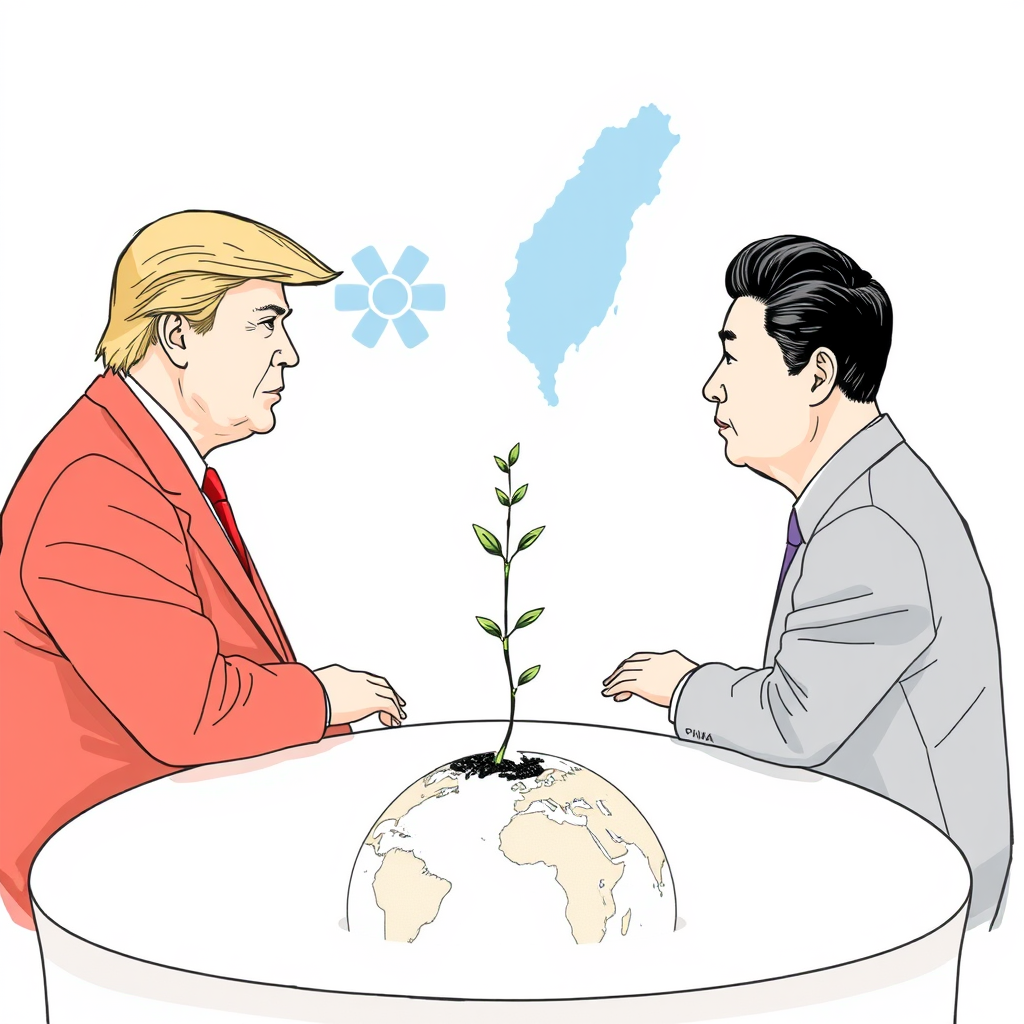Trump and Xi Could Defuse Global Crisis

A temporary pause in escalating tariffs between the United States and China has offered a glimmer of hope, prompting calls for a more substantial shift towards de-escalation. While the 90-day truce announced this week is a welcome development, analysts suggest a direct engagement between President Donald Trump and Chinese President Xi Jinping could be crucial to solidifying a lasting détente.
The potential for a Trump-Xi meeting is particularly intriguing given both leaders’ past willingness to pursue ambitious deals. Trump, during his initial term, repeatedly expressed a desire for a comprehensive agreement with China. Now, with the tariff impasse momentarily eased, a direct conversation appears increasingly likely.
Some observers believe Xi might find Trump a more amenable negotiating partner than President Joe Biden. The Biden administration has largely focused on managing tensions through established diplomatic channels, while Trump’s approach, though often unconventional, demonstrated a willingness to address fundamental issues and explore novel solutions. His past willingness to buck political orthodoxy, such as repeatedly delaying a ban on TikTok, suggests a pragmatic approach that could appeal to Beijing.
Beyond trade, a key area for potential cooperation lies in nuclear arms control. China’s rapidly expanding nuclear arsenal – now exceeding 600 warheads and potentially matching the U.S. and Russia’s deployed arsenals – presents a growing concern. A joint “sole purpose” declaration, limiting nuclear weapons to deterring nuclear attacks, could address Chinese anxieties. Even more ambitiously, a trilateral cap on warheads – perhaps at 1,000 each for the U.S., China, and Russia – could avert a dangerous three-way arms race.
The Taiwan issue also presents an opportunity for compromise. A renewed commitment to the “One China Policy” by the U.S., coupled with a reduction in military advisors on Taiwan’s outer islands, could be met with a corresponding easing of Chinese military deployments and exercises around the island. Lowering tensions in the Taiwan Strait could have ripple effects, potentially easing frictions between China and the Philippines and fostering a broader agreement in the South China Sea.
Furthermore, a collaborative approach to the Korean Peninsula, involving joint overtures to Pyongyang, could help end North Korea’s involvement in the Russia-Ukraine war and alleviate concerns about its nuclear ambitions.
A successful Trump-Xi meeting could yield diplomatic wins for both superpowers, avert potential armed conflicts, and establish a framework for ongoing dialogue. However, the window of opportunity may be closing. Delaying engagement risks allowing hawks on both sides to gain momentum and pushing the relationship towards a dangerous escalation.
While the path to détente won’t be easy, Trump’s willingness to challenge conventional wisdom and pursue unconventional solutions could prove to be a valuable asset. If he acts decisively now, he could secure a period of peace and prosperity for the 21st century. The current pause in tariffs is a start, but a sustained shift towards de-escalation requires bold leadership and a willingness to engage directly with China.